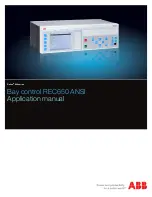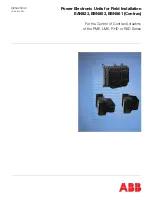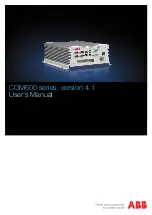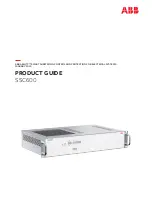
OLIMEX© 2020
MOD-IO user's manual
CHAPTER 2: SETTING UP THE MOD-IO BOARD
2. Introduction to the chapter
This section helps you set up the MOD-IO extension development board for the first time. Please consider
first the electrostatic warning to avoid damaging the board, then discover the hardware and software
required to operate the board.
The procedure to power up the board is given, and a description of the default board behavior is detailed.
2.1 Electrostatic and electrical polarity warning
MOD-IO is shipped in a protective anti-static package. The board must not be exposed to high
electrostatic potentials. A grounding strap or similar protective device should be worn when handling the
board. Avoid touching the component pins or any other metallic element.
When connecting other electrical devices to the MOD-IO board make sure that they have equal electrical
polarity. This usually occurs in setups where you need to use more than one power supply unit. If you
have such a setup make sure different power supplies are connected to the same electrical source (to the
same utility power socket).
In rare cases different polarity might cause hardware damage to one of the boards in your setup.
2.2 Hardware requirements
In order to set up the MOD-IO optimally one or more additional items may be used. They might be
generally placed in three categories:
Required
– items that are needed in order to achieve minimum functionality;
Recommended
– items that is good to have in order to be able to interact with the most important of the
features of the board;
Additional
– items that provide access to additional features or expand the features of the board.
Required items:
- Power supply unit that is able to provide (6V-20V)
AC
or (8V-30V)
DC
Recommended items:
- An ISP programmer or a JTAG debugger – if you wish to modify the firmware you would need a way to
upload the binary code to the board; in case you wipe the memory accidentally or you need to replace the
main microcontroller you would also need such a tool.
Please note that Olimex has a few low-cost programmers supported by both Atmel studio and
AVRDUDE.
Additional items include:
- Jumper cables – comes in handy when you want to connect something to the MOD-IO or when you
want to measure a hard to reach spot
Page 7 of 30








































